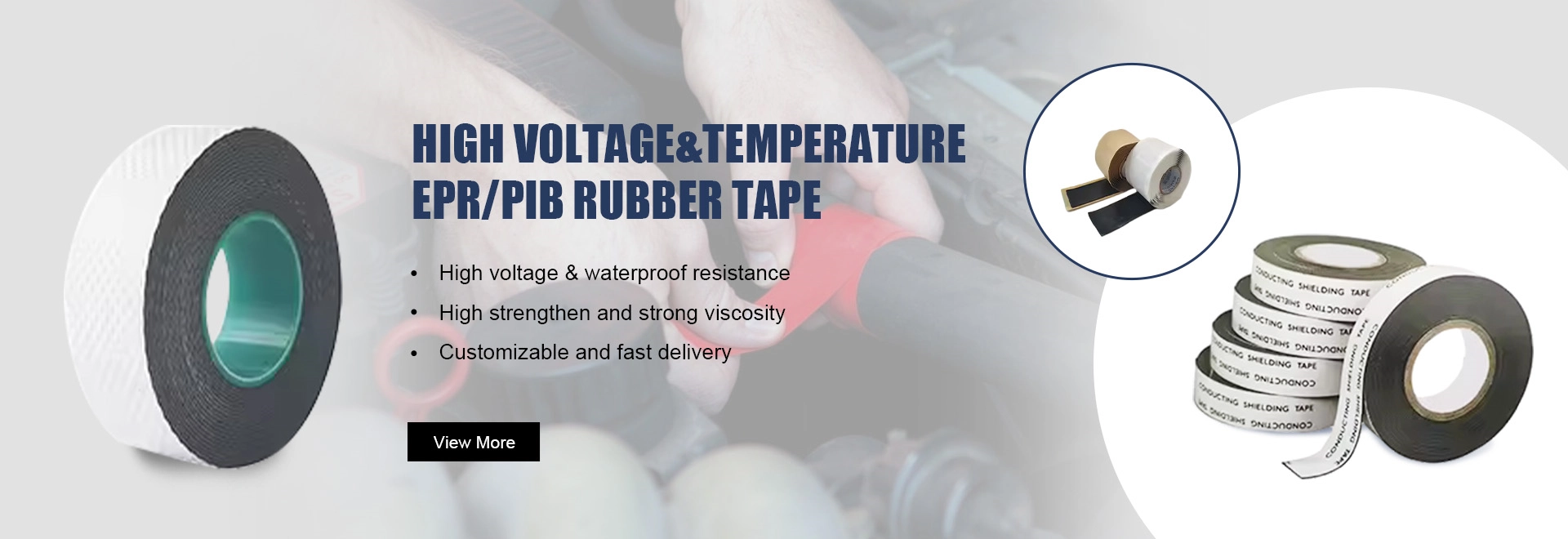The Versatility and Applications of Rubber Tape
In the world of tools and materials, rubber tape stands out as a uniquely versatile product. With its remarkable properties, this adhesive tape has found applications in various industries, ranging from electrical repairs to plumbing and even arts and crafts. This article will explore the characteristics, benefits, and diverse applications of rubber tape.
What is Rubber Tape?
Rubber tape is a self-fusing, insulating tape made from high-quality rubber materials. One of its most notable features is that it does not have a traditional sticky backing. Instead, it adheres to itself when wrapped around surfaces. This characteristic makes it exceptionally useful for creating airtight seals, insulation, and protective coverings.
The tape comes in various widths and thicknesses, usually supplied in rolls. It is available in different colors, but black is the most common due to its suitability for a wide range of applications and its ability to blend with most surfaces.
Key Characteristics
1. Self-Fusing Unlike most conventional tapes, rubber tape does not rely on adhesive for sticking. When stretched and wrapped around itself, it fuses to create a cohesive bond, forming a waterproof and insulating seal.
2. Electrical Insulation Rubber tape is often used in electrical applications due to its excellent insulation properties. It can withstand high voltages, making it ideal for protecting wires and connections.
3. Flexibility The tape is highly flexible, allowing it to conform to irregular shapes and surfaces. This flexibility ensures a snug fit, which is crucial in many repair and maintenance tasks.
4. Durability Rubber tape is resistant to weathering, UV radiation, and extreme temperatures. This durability makes it suitable for both indoor and outdoor applications.
rubber tape

5. Chemical Resistance Many rubber tapes exhibit resistance to various chemicals, oils, and solvents, adding to their extensive utility in industrial environments.
Applications of Rubber Tape
1. Electrical Repairs One of the primary uses of rubber tape is in electrical work. Electricians use it to wrap wires and connections, providing both insulation and protection against moisture and environmental factors.
2. Plumbing In plumbing, rubber tape serves as an effective sealant for pipes and fittings. It can prevent leaks in situations where traditional tapes may fail.
3. Automotive Mechanics often utilize rubber tape for insulating wires and repairing hoses. Its ability to withstand high temperatures makes it particularly useful in automotive applications.
4. Sports Equipment In the realm of sports, athletes and trainers apply rubber tape to grip handles and equipment. The added grip can enhance performance and safety during physical activities.
5. Arts and Crafts The unique properties of rubber tape make it a popular material in arts and crafts. Crafters use it for various projects, including creating custom designs, adding texture, and even for its aesthetic appeal.
6. Temporary Fixes Rubber tape can serve as a temporary solution for various repairs. Whether fixing a broken garden hose or providing a quick fix to an electrical cable, this tape can hold up until a more permanent solution is implemented.
Conclusion
Rubber tape is an essential tool that combines functionality with convenience. Its self-fusing nature, along with its resistance to heat, moisture, and chemicals, makes it suitable for diverse applications across several industries. Whether used for electrical repairs, plumbing, automotive maintenance, or crafting, rubber tape proves to be an invaluable asset. As technology advances and new materials are developed, the continued innovation and myriad uses of rubber tape underscore its lasting importance in both professional and DIY environments. With its simple design and incredible versatility, rubber tape remains a staple in toolkits worldwide.
-
XIANGFAN Rubber Tape-Ultimate Solutions for All Your Insulation NeedsNewsJun.24,2025
-
XIANGFAN Rubber Tape-Protection for Industrial and Residential ApplicationsNewsJun.24,2025
-
XIANGFAN Rubber Tape: Superior Safety and Sealing for Demanding EnvironmentsNewsJun.24,2025
-
XIANGFAN Rubber Tape: Reliable Solutions for Every Electrical ChallengeNewsJun.24,2025
-
XIANGFAN Electrical & Industrial Tape: Powering Reliability Across IndustriesNewsJun.24,2025
-
XIANGFAN Electrical & Industrial Tape: Excellence in Every ApplicationNewsJun.24,2025
